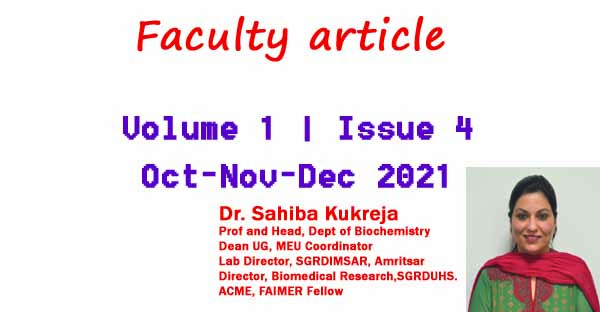
Dr. Sahiba Kukreja
Prof and Head, Dept of Biochemistry
Dean UG, MEU Coordinator
Lab Director, SGRDIMSAR, Amritsar
Director, Biomedical Research, SGRDUHS.
ACME, FAIMER Fellow, Internal Auditor ISO15189
Assessor ISO15189
Diploma in Hosp Management
Internal Councellor NABH standards
(Quality council of INDIA).
Introduction
Studying with partners and teams which is also referred to as peer-assisted learning (PAL) is an acceptable and enjoyable method of teaching and learning. The term is characterized as the teaching activity involving individuals who belong to a similar social group and who cannot be classified as professional teachers. PAL is rooted in the concept of learning through working in groups and tutoring learners at the same level of knowledge. This teaching-learning (T/L) method is not used in full potential in many of the medical colleges in North India. The benefit of this method includes preparing the students for future educational responsibilities, establishing healthy peer-mentor relationships, and reducing the burden from faculty members. It is useful in imbibing organizational and teaching skills to both the peer-tutor and peer-tutee. It can actually help the students to feel worthwhile by contributing to medical education in a number of ways, for example by contributing to building the teaching materials such as case studies, videos, etc.
Access to Subscribers Only
Login / Register To Unlock The Content!
